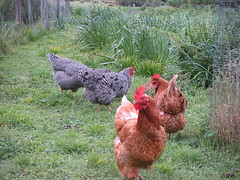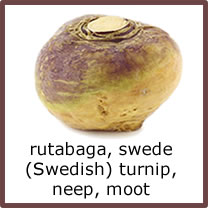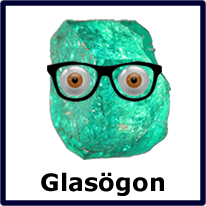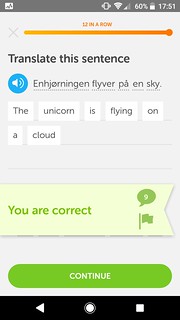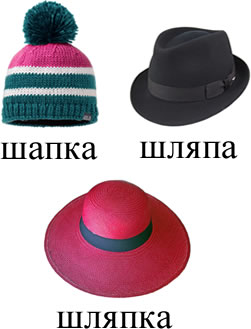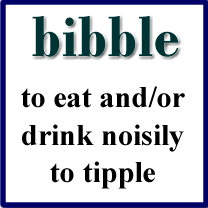
I came across a wonderful word yesterday – bibble – which means to eat and/or drink noisily, or to tipple. Or in Yiddish it means to worry.
It comes from the Middle English bibben (to drink), from the Latin bibō (I drink), from Proto-Indo-European *peh₃- (to drink) [source].
If you’re a bibbling bibbler, you may need a bib, which comes from the same root, and originally meant to drink heartily [source]. While bibbling, maybe you’ll engage in some bibble-babble (idle talk, babble), possibly in a bibbery (drinking house), which would be bibacious.
The words imbibe, potion and potable come from the same root, as do words for to drink in various languaages, including: ól (Irish), òl (Scottish Gaelic), yfed (Welsh), eva (Cornish), boire (French), and beber (Spanish, Portuguese, Galician, Asturian & Aragonese).
Words for beer Slavic languages come from the same root as well: pivo (Croatian, Czech, Slovak & Slovenian), piwo (Polish, Sorbian), and пиво (Russian, Ukrainian, Bulgarian, Macedonian & Serbian).

